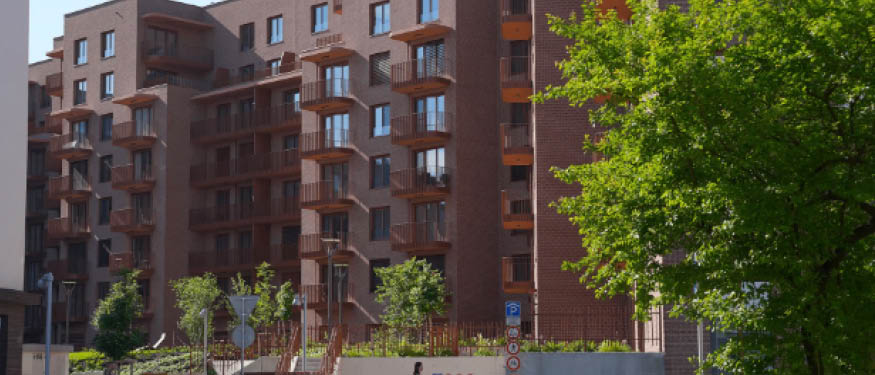In March the European Commission approved a EUR 3bln (RON 15.22bln) Romanian scheme to support installations producing electricity from onshore wind and solar photovoltaic. The approval relates to an initiative launched for consultations by the Ministry of Energy in August 2023, aimed at implementing a Contracts for Difference (CfD) support mechanism for low-carbon technologies (the "CfD Scheme").
In the wake of the Commission's approval, the Romanian Government published for consultations a draft decision enacting the general framework for the CfD Scheme, as well as a template CfD contract. Interested parties were invited to submit observations until 25 March.
Who can apply?
As anticipated in our earlier newsletter, the CfD Scheme will only be available for new generation capacities, i.e. capacities that have not been commissioned prior to the submission of the funding application. Further details regarding the "new project" criteria will be set out in the subsequent orders for the initiation of the CfD auctions.
The scheme is designed to support a broad range of technologies, all falling in the low-carbon emissions ambit. These include onshore and offshore wind, solar photovoltaic, hydro, nuclear, hydrogen technology and energy storage technologies.
The first rounds of CfD auctions are dedicated to eligible onshore wind and solar photovoltaic projects, as part of the 15-year CfD Scheme for which the Commission approved EUR 3bln from the Modernisation Fund. The auctions will be organised in 2024 and 2025 and, according to public statements, will target 2 GW of onshore wind and solar projects in 2024 and 3 GW in 2025.
Detailed eligibility criteria for each CfD Scheme and CfD auction round will be provided in the orders that the Ministry of Energy will issue to approve the CfD Scheme and to initiate the auction rounds.
Ad-hoc CfD contracts
In addition to the state aid granted by way of the CfD auction mechanism, ad-hoc CfD funding will also be available via ad-hoc CfD contracts directly negotiated and granted by the Ministry of Energy to the respective beneficiaries. The ad-hoc CfD is dedicated to supporting the production of energy using eligible technologies for which a selection of projects via a competitive bidding process would not work in practice (e.g. nuclear).
The terms and conditions of each ad-hoc CfD contract are directly negotiated and must be notified to and approved by the European Commission.
Roles and responsibilities
Various institutional stakeholders will assume roles in the implementation of the CfD system. These are: (i) the Ministry of Energy sitting at the forefront of the initiative, issuing the orders for implementing the various CfD schemes, managing and overseeing them, preparing the methodology regarding the maximum strike price; (ii) Transelectrica SA, the Romanian TSO, acting as the operator of the CfD Scheme; (iii) OPCOM, the operator of the centralised power exchange, acting as CfD counterparty; and (iv) the Romanian Regulatory Authority (ANRE), responsible for calculating, updating and revising the "reference prices", settling the disputes between the CfD contractual parties and elaborating various methodologies.
Key terms of the CfD Scheme
Under the CfD Scheme, CfD contracts will be entered between the CfD counterparty (i.e. OPCOM – operator of the centralised power exchange) and the CfD beneficiaries. These contracts will serve as the basis for payment of the CfD differences between the CfD counterparty and the CfD beneficiary.
The CfD will provide a "strike price" to be established via the competitive CfD auctions rounds or via direct negotiations in the case of ad-hoc CfD contracts. These must never exceed a cap specified in the order for the initiation of the CfD auction. The Ministry of Energy anticipates that the first maximum strike prices for the onshore wind and solar CfD auctions will be of EUR 91/MWh for solar and EUR 93/MWh for wind.
Furthermore, ANRE will determine a "reference price" and update it monthly according to the formula provided in the CfD contract and a dedicated methodology to be enacted by ANRE. The draft CfD contract published for consultations indicates that the reference prices will be determined based on weighted average prices on the Romanian day-ahead market (DAM).
ANRE will revisit the reference prices and related methodology if it deems that they no longer reflect the market prices and trigger an overcompensation for CfD beneficiaries. It will also do so where more than 50 % of the CfD beneficiaries claim that the respective reference price triggers a systematic under-compensation.
Based on the executed CfD contracts, the CfD counterparty will then compute and process the payments for CfD differences, to be made by either the CfD counterparty (where the difference between the strike price and the reference price is positive) or the CfD beneficiary (where the difference between the strike price and the reference price is negative). For the periods with negative prices in the respective wholesale markets for the settlement interval, the CfD beneficiary will not receive any payments for CfD differences.
Route-to-market restricted to the centralised power exchanges
One notable requirement is that CfD beneficiaries must route-to-market all the generated energy benefiting from the CfD Scheme (except for energy used for own technological consumption) on the organised markets, i.e. the centralised power exchanges operated by OPCOM and the Romanian Commodities Exchange (BRM). Failure to observe this requirement may trigger exclusion from the CfD Scheme, as well as the obligation to refund any payments for CfD differences relating to trades breaching this requirement.
As a rule, the excess revenues realised by CfD beneficiaries based on bilateral agreements entered on the organised markets will be computed by ANRE (based on methodologies to be approved) and refunded by the CfD beneficiaries to the CfD liquidity fund, to avoid overcompensation. However, to incentivise the CfD beneficiaries to also route-to-market their energy via bilateral contract, on other organised markets rather than on spot markets, a mechanism for the allocation of excess revenues generated via bilateral contracts guarantees that CfD beneficiaries will retain at least part of the revenues realised from bilateral contracts. These are computed based on the difference between the sale price in bilateral contracts and either the reference or the exercise price, according to the formulae provided in the draft Decision.
Financing of the CfD Scheme and financial guarantees
The financing of the CfD Scheme is split between two primary channels: a collection mechanism from all end consumers and/or non-repayable EU funds.
The safe operation of the CfD Scheme is also supported by a framework of financial guarantees aimed at ensuring CfD beneficiaries and bidders comply with their obligations. These include:
- performance guarantees – to be issued by reputable Romanian or international financial institutions within the EU and EEA and provided by successful bidders for guaranteeing the timely and successful completion of their projects;
- participation guarantees – to be provided by all CfD bidders, for confirming their intent to participate in the CfD Scheme and safeguarding against speculative bidding.
Conclusions
After a lengthy process, Romania is finally proposing an operational aid scheme for low-carbon technologies that is in proper shape and ready to go. Backed by the recent EC approval of the EUR 3bln funding from the Modernisation Funds, the CfD Scheme looks promising and reliable for the long term. Nevertheless, the devil is in the details. The market will certainly pick up on a couple of these, such as the requirement to route-to-market the electricity on the organised market as well as the negative pricing rule.
By Monica Cojocaru, Local Partner, Schoenherr
















